Blueberry Cheese Auto Cannabis Strain Week-by-Week Guide

- 1. Grow specifications
- 2. Grow set up
- 3. Germination and seedling stage | week 1
- 4. Early veg | week 2
- 5. Mid veg | weeks 3-4
- 6. Transition (pre-flower) | week 5
- 7. Early flower | weeks 6-7
- 8. Mid flower (bulk phase) | weeks 8-9
- 9. Ripening and harvest | week 10 (and beyond)
- 10. Yield and smoke report
- 11. In conclusion
Blueberry Cheese Auto is a fantastic choice for both growers and smokers. Its autoflowering nature makes it easy to cultivate, and it's renowned for its high productivity. This strain effortlessly adapts to various growing conditions and transitions to flowering in just five weeks, requiring minimal effort. For growers, that's a huge advantage. For smokers, the delightful blend of fragrant, cheesy, and earthy flavors is a real treat that keeps you coming back for more.
Give Blueberry Cheese Auto a try – you won't be disappointed, and with our week-by-week growing guide, complete with the seed-to-harvest timeline and cultivation tips for different stages, you can be sure of having a great experience throughout.
1. Grow Specifications
Blueberry Cheese Auto boasts a remarkable genetic lineage, combining the best of Cheese, Blueberry, and Ruderalis strains. With an 80% Indica and 20% Sativa composition, it's perfectly suited for any setup and environment. Growing this strain is a breeze, especially for indoor cultivators. It maintains a compact height of 80-100 cm indoors, making it ideal for discreet cultivation. The yields are impressive, offering up to 500 grams per square meter. Outdoors, it can reach up to 100 cm in height, thriving in hot climates. From seed to harvest, it only takes 70-75 days, which is quite impressive for an autoflowering strain.
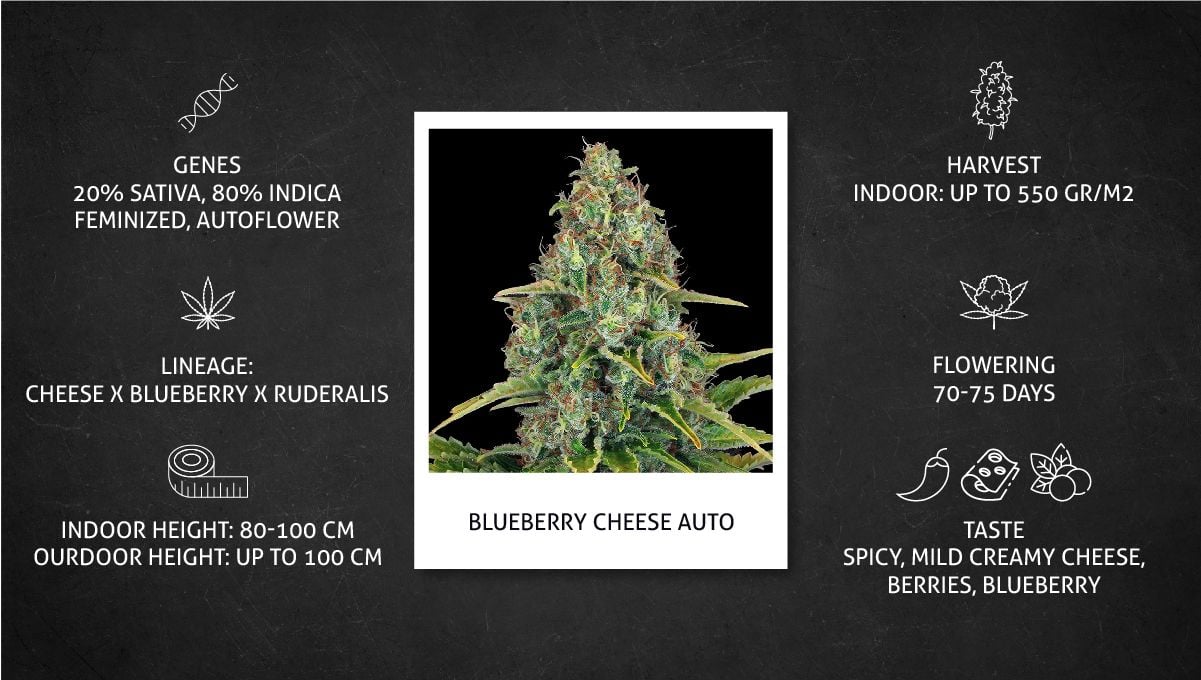
When it comes to the product itself, Blueberry Cheese Auto delivers a delightful and unique taste experience. With spicy notes, a hint of mild creamy cheese, and the sweetness of berries and blueberries, it's a flavor sensation. The aroma is equally captivating, featuring mature cheese, sweet fruitiness, and a subtle skunky tang. The effects are truly something special, inducing relaxation, happiness, and a calm, soothing upliftment.
2. Grow Set Up
Blueberry Cheese Auto is a popular strain among growers, so we had no trouble finding several good grow diaries that are informative and have high-quality pictures. We took data and some of the pics from one grow report (by an experienced gardener calling himself Zurban_Poisonia) and used photographs from other grow reports whenever we thought they would give you a better idea about this autoflower's features.
| Grow Space: | 0.6 m2 (6.46 ft2) | Pot Size: | 15 l (3.96 gal) |
|---|---|---|---|
| Seed to Harvest: | 12 weeks | Medium: | Coco/Perlite |
| Flowering: | 7 weeks | Nutrients: | Synthetic/Organic |
| Light Cycle: | 20/4 | pH Levels: | 5.5-5.8 |
| Light Type: | LED | Day Temperature: | 25°C (77°F) |
| Watts Used: | 245W | Humidity: | 70% |
The setup data in the table above is just one example of how you can create appropriate environment for your Blueberry Cheese Auto. Of course, this versatile strain will thrive in many other conditions as well.
3. Germination And Seedling Stage | Week 1
The table below gives you a very good idea of what conditions to create for the first week in the life cycle of your Blueberry Cheese autoflower, especially, when it comes to the temperature and the relative humidity. We'd say they are close to perfect.
| Plant Height: | 8 cm | Humidity: | 70% |
|---|---|---|---|
| Distance to Light: | 50 cm | Water per Day: | 0.2 l |
| Day Temp: | 25°C (77°F) | pH: | 5.5 |
| Night Temp: | 20°C (68°F) | TDS: | 400 |
Cannabis seeds 'wake up' as soon as you make them wet, provided that it's also warm. The third condition that is also important is darkness. Many growers start their weed seed germination with soaking their beans in a glass of water. Nothing fancy is needed - just plain dechlorinated water of drinking quality will do. Let the seeds float on the surface until they crack or let them sink to the bottom. In the latter case, make sure to remove them from water in 12 hours, or else they may suffocate.
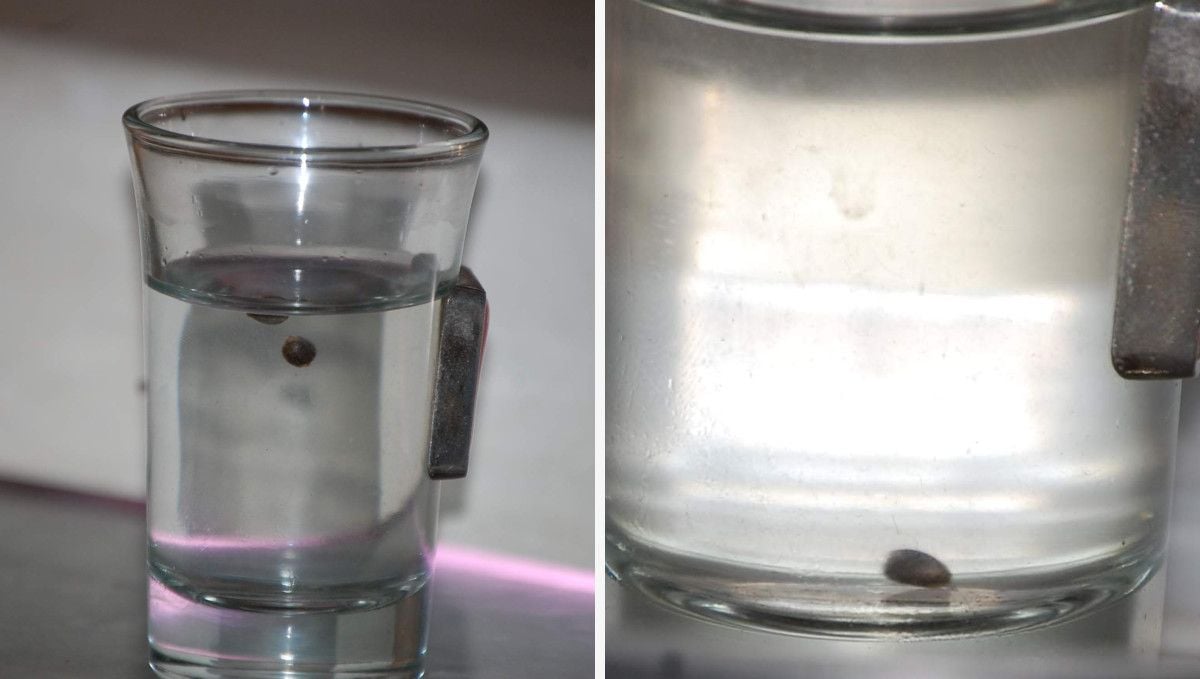
Whether you presoak the seed or not, continue with the germination by placing it between wet paper towels. This is hands-down the easiest and also one of the most reliable ways to germinate cannabis seeds. Keep the seed between moist paper towels until it cracks and shows the taproot.
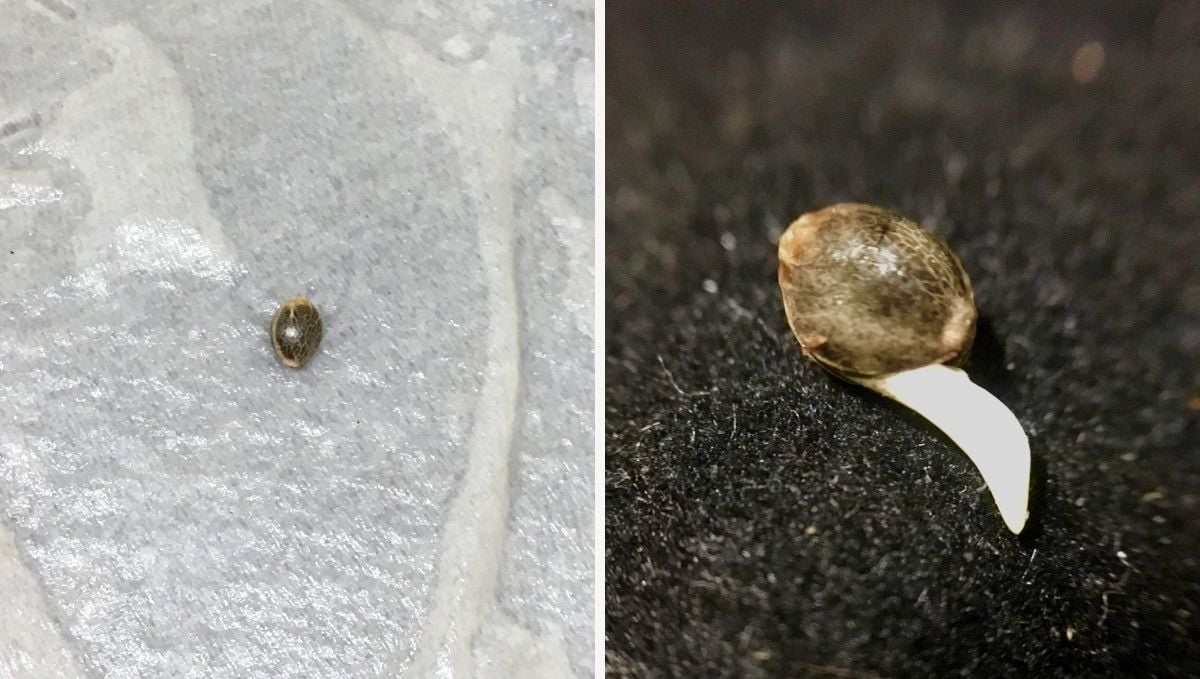
You don't have to rush planting the seed as soon as it cracks. Your future sprout will become more vigorous if you let the taproot reach at least one cm in length. The downside is that the taproot can become curvy and not very convenient to put in the medium.
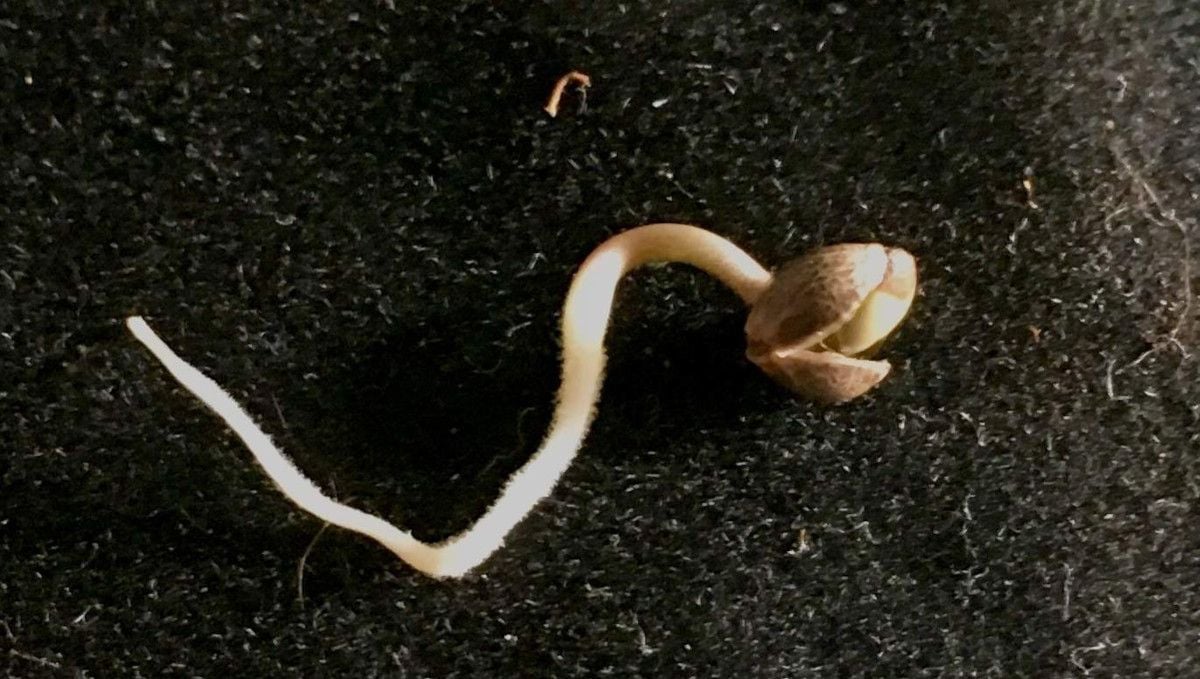
Don't bury the seed too deeply - 1 cm will be enough. Having some medium on top of it will give the seed something to push against when its taproot digs into the medium. By covering the seed hull with a thin layer of soil and keeping it moist, you'll soften the shell and it'll come off on its own when the sprout emerges.

As soon as the seed has come up, you should provide it with sufficient light but not too much. The seedling should stretch a bit without becoming spindly. On the other hand, it shouldn't be too short and stocky - that would mean that the light is too close and overwhelms the little guy with too much energy.
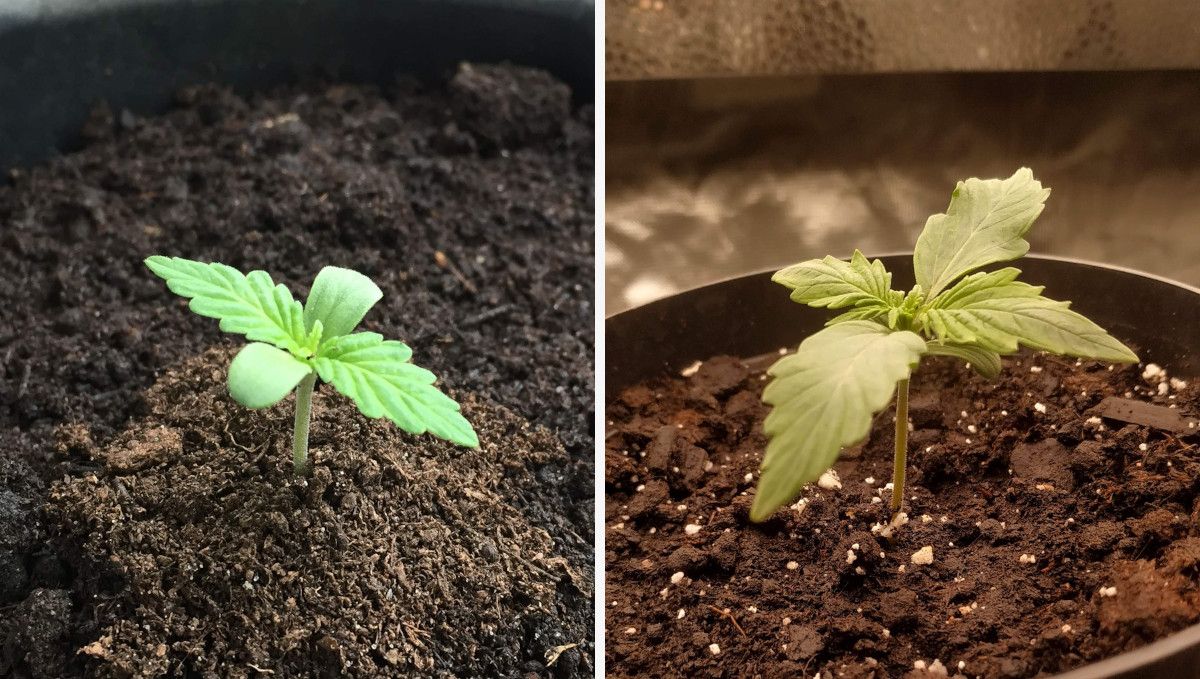
4. Early Veg | Week 2
Cannabis likes day temperatures at around 25°C, but in the first couple of weeks, it would be even better if day temps were a couple of degrees higher. A 5-degree drop at night that you see in the table below is just perfect, and so is the relative humidity at around 70%. As your weed grows, the air can become slightly cooler and drier.
| Plant Height: | 8 cm | Humidity: | 70% |
|---|---|---|---|
| Distance to Light: | 50 cm | Water per Day: | 0.2 l |
| Day Temp: | 25°C (77°F) | pH: | 5.5 |
| Night Temp: | 20°C (68°F) | TDS: | 400 |
The second week from seed is the time when your plant's progress becomes obvious. New pairs of leaves are emerging every day, and each new pair is bigger than the previous one. In bushier strains, such as Blueberry Cheese Auto, you'll also witness side branches starting to grow as early as week 2.

Naturally, such active growth of foliage requires sufficient nutrients. If you grow in soil and use pots with a big enough volume, feeding a young plant is never a problem. Most of the time, giving your weed plain water is enough. However, if your starter pot is small (like in the photos above) or you use hydroponics or coco coir as your growing medium, you'll need to mix in extra nutrients in your water right from the start. Look at the seed-to-harvest feeding chart below. It isn't complicated, but it's efficient, and you can use it for reference.
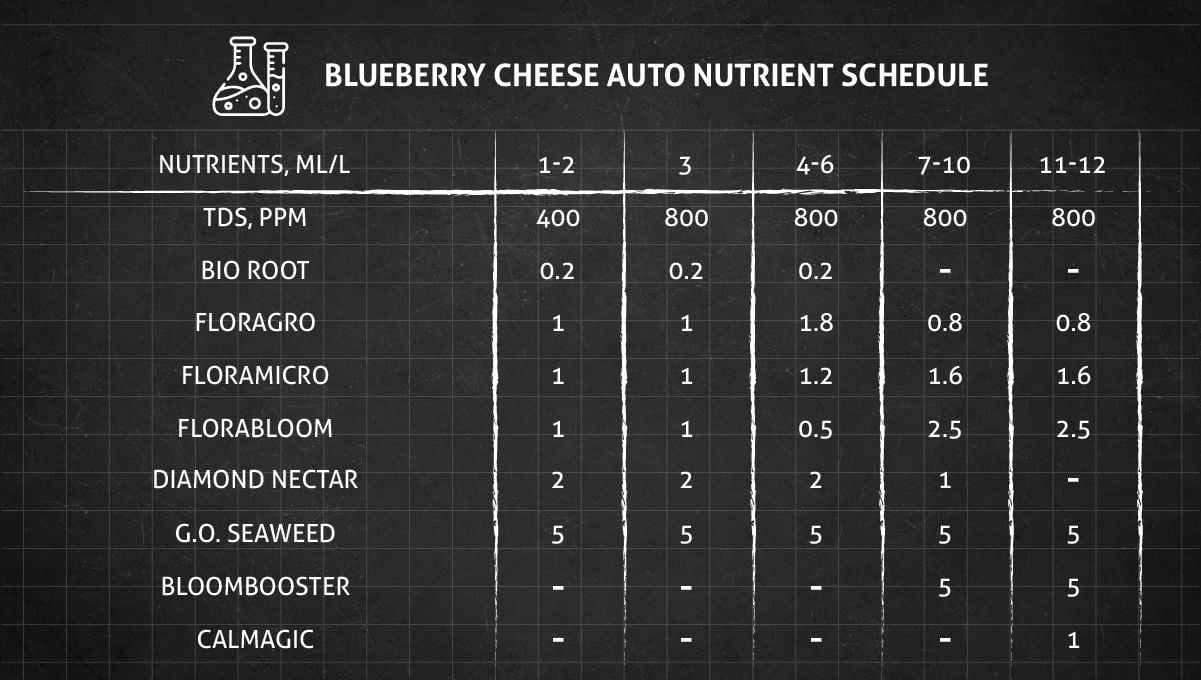
Of course, you don't have to use the exact same products. There's a growing number of very good cannabis nutrients on the market now, and you can use any of them. Just follow the manufacturers instructions and never exceed the dosages as cannabis hates overfeeding.
5. Mid Veg | Weeks 3-4
As your autoflower starts to grow more vigorously than ever before, it can handle a wider range of conditions without slowing down its progress. Neither the temperatures nor the relative humidity need to be as high as they were before. Also, always pay attention to pH levels (unless your grow is fully organic; then, monitoring pH is optional). Cannabis likes neutral to slightly acidic mediums or more specifically, 5.5-6.0 in coco and hydro and 6.0-6.5 in soil.
| Plant Height: | 30-35 cm | Humidity: | 70% |
|---|---|---|---|
| Distance to Light: | 50 cm | Water per Day: | 1.5 l |
| Day Temp: | 25°C (77°F) | pH: | 5.8 |
| Night Temp: | 20°C (68°F) | TDS: | 800 |
Be prepared for a very rapid vegetative growth during this period. By being prepared, we mean transplanting your autoflower into a sufficiently large container with a lot of nutrient-rich medium. Also, be sure to use a powerful light. Many growers start their cycle with a weak bulb like CFL, but when the plant gets this big, it will require a good grow light with sufficient wattage and at an optimal distance.
Also, don't forget to water your autoflolwer generously but not too often and provide some nitrogen-rich plant food with every other watering. All this will help you sustain vigorous growth and create enough 'real estate' (meaning branches) for future bud sites.
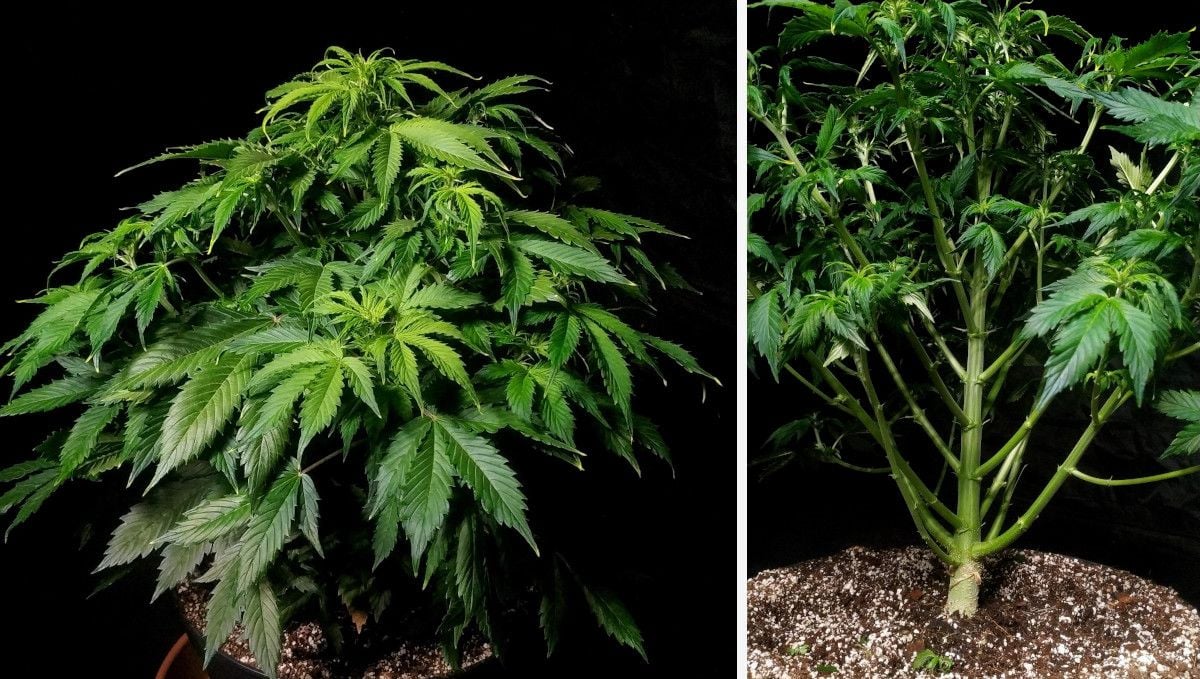
We've seen quite a few Blueberry Cheese Auto grows, and in most of them this autoflower tended to be stocky and bushy, with a naturally flat canopy profile and an intimidating number of side branches. This makes it suitable for indoor cultivation but requires some space to fit in all this extra girth.
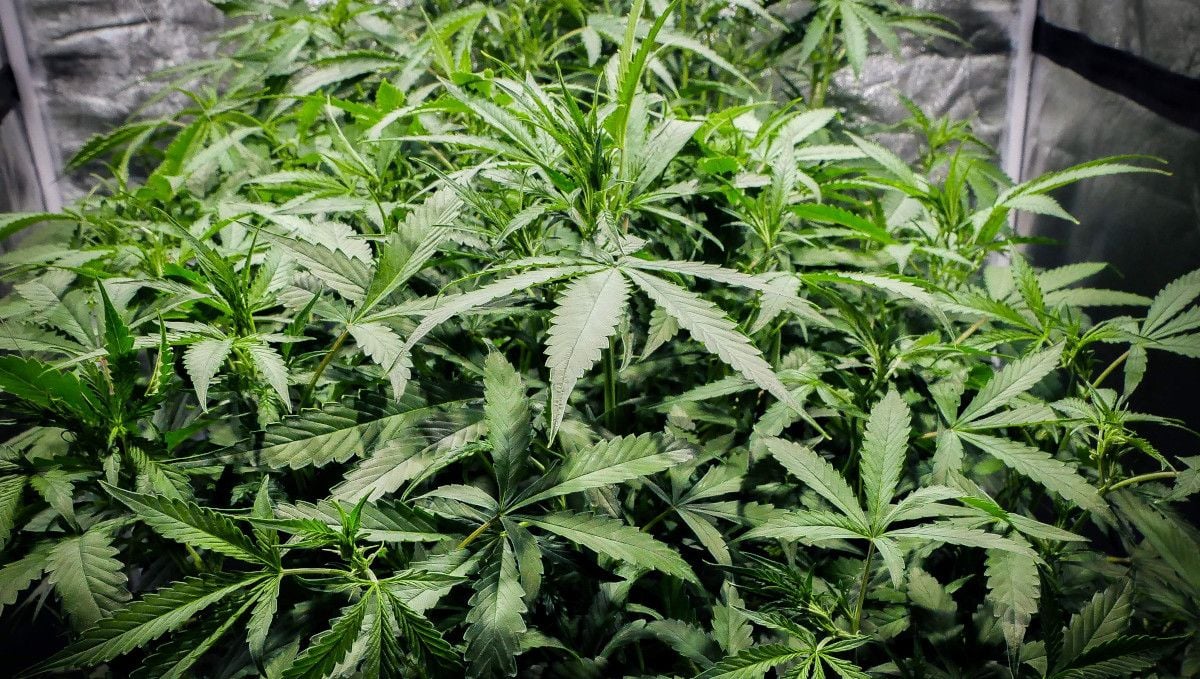
You don't really have to train Blueberry Cheese Auto to keep it short and wide, and if you do train, use some less invasive technique such as tying down. High-stress training methods (HST) are unnecessary for this strain and only introduce extra risk.

When growing autoflowers outdoors, don't expect the same vigor as indoors. Outdoor plants tend to be flimsier and less bushy than their indoor counterparts. Well, at least in the beginning of their life cycle. Later, they will make up for the lost time - if you provide their root system with enough space.

6. Transition (Pre-Flower) | Week 5
As your weed plant matures and transitions from the vegetative phase to the flowering stage, it becomes hungrier than before. To make sure that you feed it the right amount of nutrients, use a TDS-meter to know exactly how strong your nutrient solution is. These grower was giving his Blueberry Cheese Auto around 800 ppm (parts per million), and we should say this is a rather lean diet – many growers go higher than that, up to 1200 ppm for mature plants.
| Plant Height: | 35 cm | Humidity: | 70% |
|---|---|---|---|
| Distance to Light: | 50 cm | Water per Day: | 1.5 l |
| Day Temp: | 25°C (77°F) | pH: | 5.8 |
| Night Temp: | 20°C (68°F) | TDS: | 800 |
The beauty of autoflowers is that you do not need to change the light cycle when you want them to start budding. This happens naturally when the plant is mature enough, big enough, and has a sufficient number of nodes (pairs of leaves). The first sign of the approaching flowering stage that you will notice is the emergence of tiny female hairs at the middle nodes. Later, the same hairs (called pistils) will appear on tops as well.

At the same time as the first flowers start to form, weed plants continue to stretch their branches and grow new leaves. Depending on the genetics, the foliage can become quite lush, as in most Blueberry Cheese Autos that we have seen. In many cases, your autoflower will benefit from defoliation when you selectively remove some of the fan leaves – those that shade the lower bud sites or restrict airflow inside the canopy.

7. Early Flower | Weeks 6-7
Once the flowering is underway, your plants will be better off if you tweak and tune the growing conditions a little bit to accommodate for the plants' changed needs. You may want to lower the day temperature to 23-25°C and, more importantly, decrease the relative humidity to something like 40-50%. In the table below, you see 70%. We hope this is just the case of copying and pasting from the previous weeks data, and the grower didn't really keep the RH so high during the flowering stage.
| Plant Height: | 35 cm | Humidity: | 70% |
|---|---|---|---|
| Distance to Light: | 50 cm | Water per Day: | 1.5 l |
| Day Temp: | 25°C (77°F) | pH: | 5.8 |
| Night Temp: | 20°C (68°F) | TDS: | 800 |
Almost all cannabis varieties, whether autoflowering or photoperiod, stretch quite a bit once the flowering starts. The Blueberry Cheese Auto plants whose progress we've been following did that too, but the most conspicuous thing about them was that both the central stem and the side branches stretched in an almost equal measure, turning the plants into formidable bush monsters.

The Blueberry Cheese Auto plant in the photo above is an especially intimidating specimen. Other plants are likely to grow less tall, but they'll be almost as bushy, such as the one cultivated by Zurban_Poisonia (see below). It stayed short and compact as you can see in the following height chart.
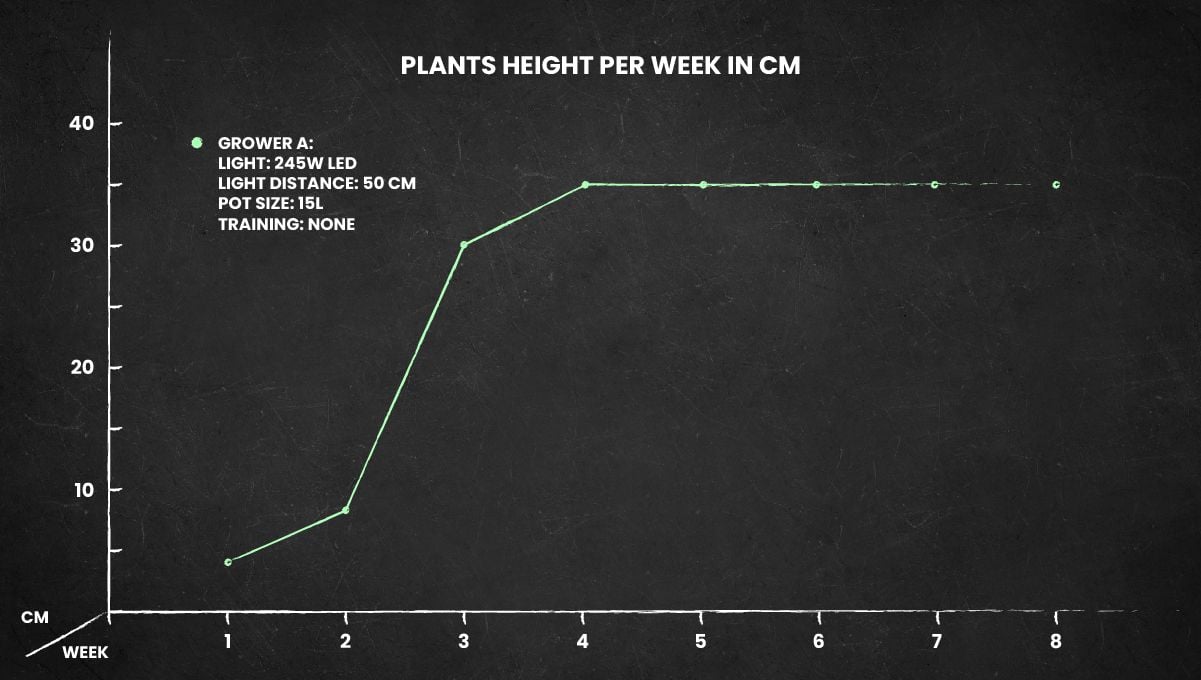
This grower let his Blueberry Cheese Auto develop naturally, and in his case, the main cola was slightly taller, although the rest of the side branches were doing their best to keep up.
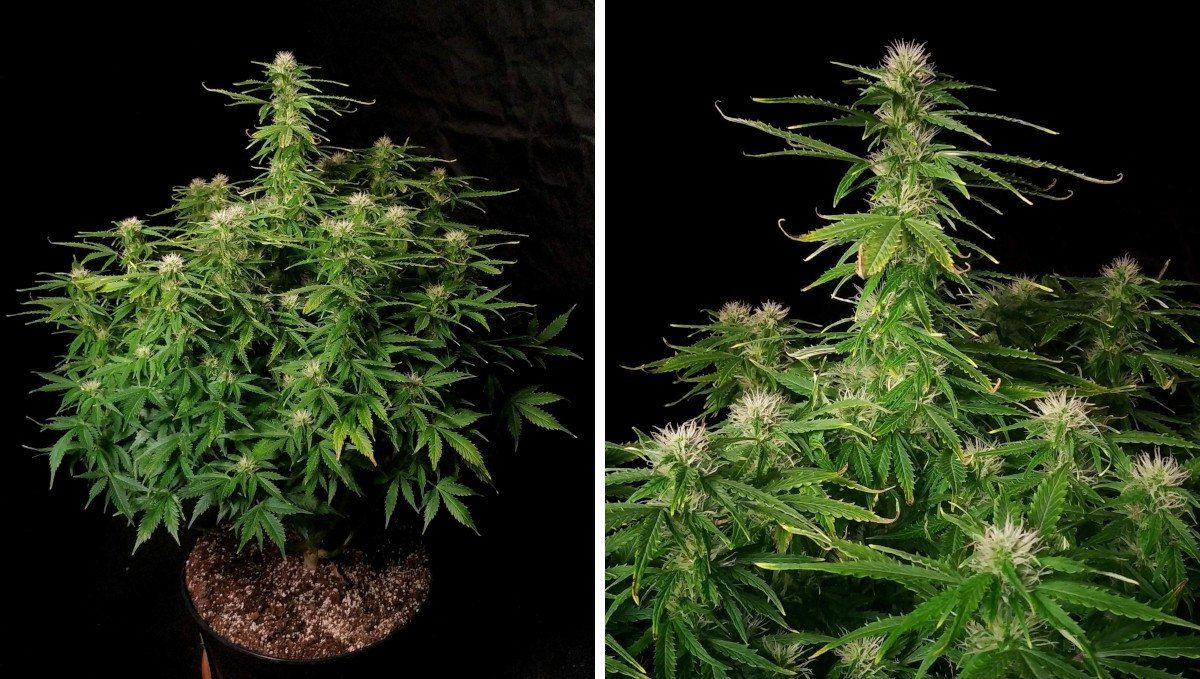
Both the continued stretch and the formation of the first flowers require higher amounts of plant food, and besides, the ratios of macronutrients in your fertilizer need to change too. Now, nitrogen, which played such important role before, becomes of lesser importance, while phosphorus and potassium are required in greater quantities because these two macronutrients facilitate the stacking up and filling out of buds.
8. Mid Flower (Bulk Phase) | Weeks 8-9
Mature plants require much more water, and depending on the volume of your pot, you will go from something like one watering every 3-4 days at the beginning of the cycle to daily or almost daily waterings. Those growers who use small containers or have chosen coco coir as their medium will have to water manually multiple times a day or even install an automatic drip system. It's impossible to say how much water you should give your autoflower – it's all context-dependent – however, you can see the ballpark figure in the table below.
| Plant Height: | 35 cm | Humidity: | 70% |
|---|---|---|---|
| Distance to Light: | 50 cm | Water per Day: | 1.5 l |
| Day Temp: | 25°C (77°F) | pH: | 5.8 |
| Night Temp: | 20°C (68°F) | TDS: | 800 |
As your plants drink water and feast on all the nutrients you give them, they channel all that into growing big and fat buds. At the same time, the flowers get covered in trichomes, which are tiny resin-rich glands covering the calyses and the little leaves that surround the buds (they are called trim teaves because you trim them at harvest). In addition to THC and other cannabinoids, trichomes also contain aromatic substances called terpenes, and quite naturally, the plants begin to smell very pungently at this stage.
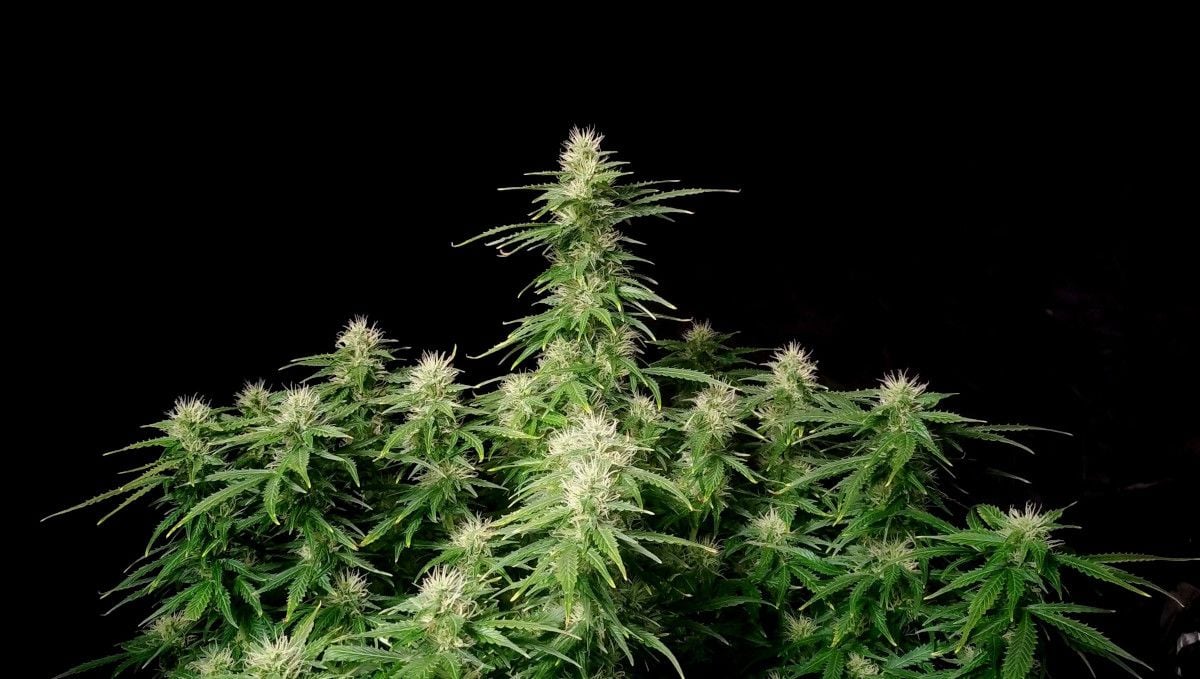
The emergence of trichomes is one of the signs that your autoflower is starting to mature. You may also notice that some of the leaves yellow or get otherwise discolored. This may be a sign of some kind of deficiency or nutrient lockout, but more often than not, it's just a symptom of your plant nearing the end of its life cycle.
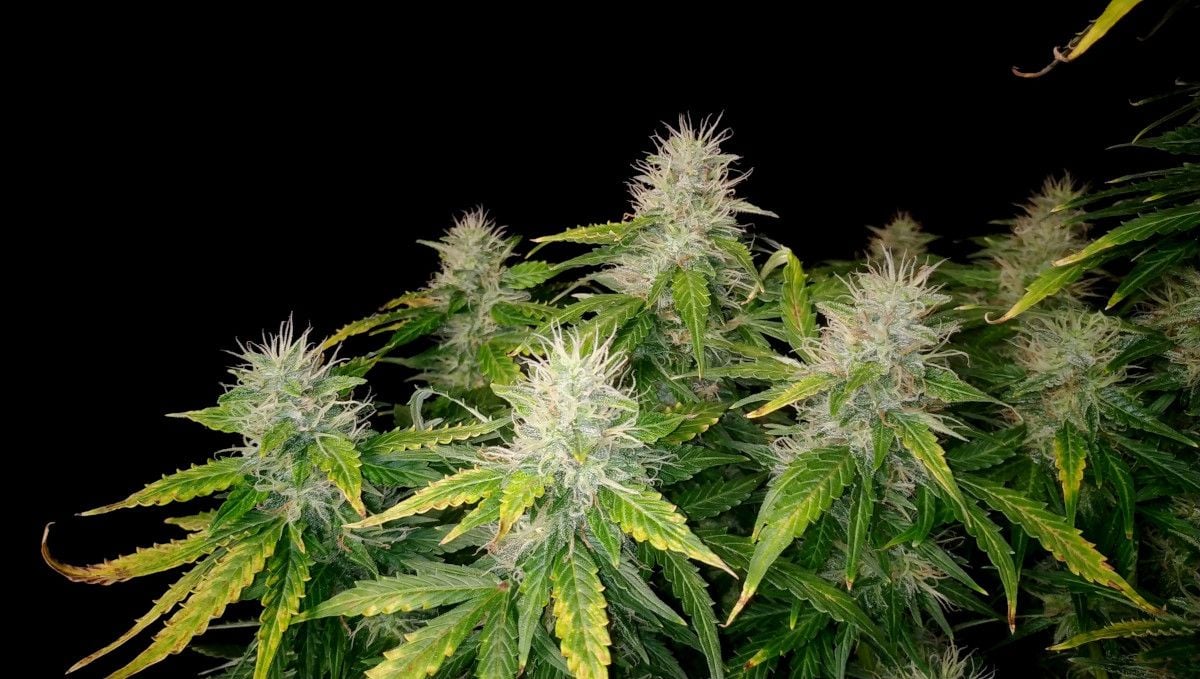
Your marijuana plants will yellow more if you have cut the supply of nitrogen (N) too early. However, weaning your plants off nitrogen is important as too much of it may interfere with the bud formation. Phosphorus and potassium (P and K), on the other hand, are needed in larger quantities than ever before. You should choose a product that's rich in these two nutrients or even buy a special PK booster.
9. Ripening And Harvest | Week 10 (And Beyond)
Paying extra attention to the environmental conditions in your grow room in the last weeks before harvest really pays off because neglecting temperature requirements can make your flowers less aromatic and less potent and failing to keep the relative humidity in the right range will lead to problems with fungal infections, such as mold, bud rot, and powdery mildew. So, try to keep the day temperatures nice and cool at below 25°C and aim for the relative humidity at 35 to 40% during this crucial period.
| Plant Height: | 35 cm | Humidity: | 70% |
|---|---|---|---|
| Distance to Light: | 50 cm | Water per Day: | 1.5 l |
| Day Temp: | 25°C (77°F) | pH: | 5.8 |
| Night Temp: | 20°C (68°F) | TDS: | 800 |
Your main task for the latter part of the flowering stage is to catch the right moment for harvest. The levels of cannabinoids and terpenes in your buds reach their peak at a certain moment, and the question is how to determine that moment.
Too many beginner growers harvest their plants too early. This happens because in the last couple of weeks, the buds stop to grow in size and you might think that they have reached their full potential and should be cut down. However, even the weight of the buds will continue to increase as they get denser. More importantly, the flowers continue to store up THC and become more potent by the day.
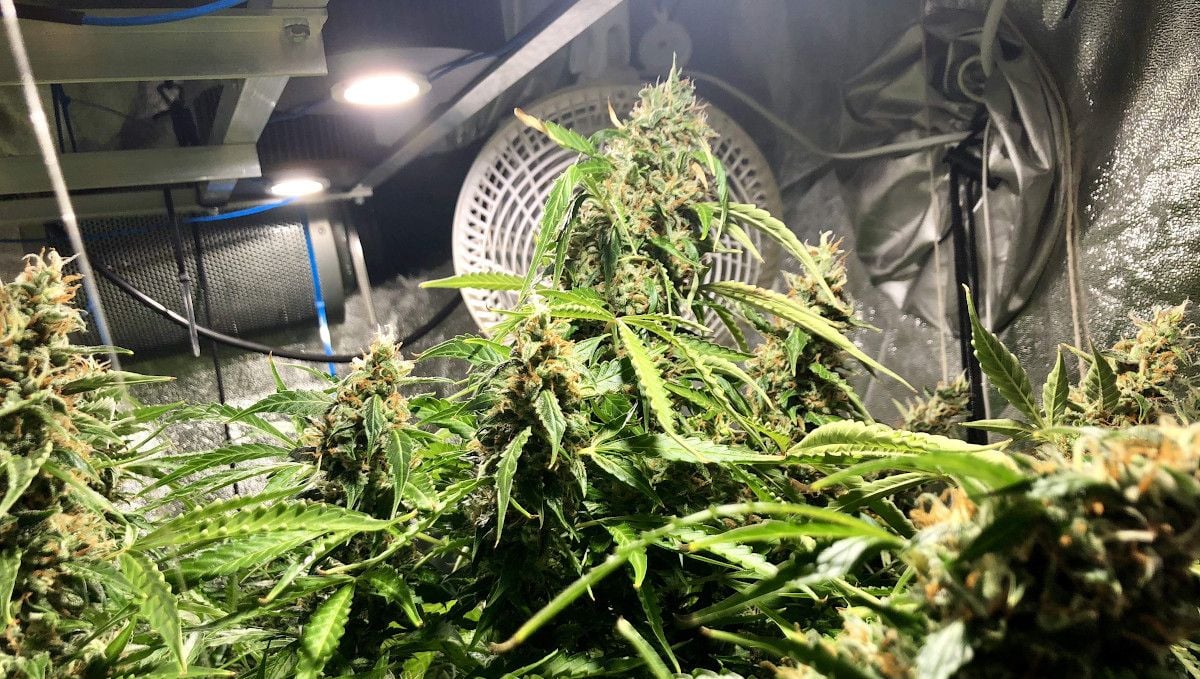
The only reliable way to make sure that the quality and the weight of your buds have peaked is to look at the flowers through a powerful (60x) hand microscope and inspect the trichomes. They start out as clear, and as they store up more and more cannabinoids, they become cloudy. When all of them are cloudy and some have changed their color to amber, the right moment for harvest has come.
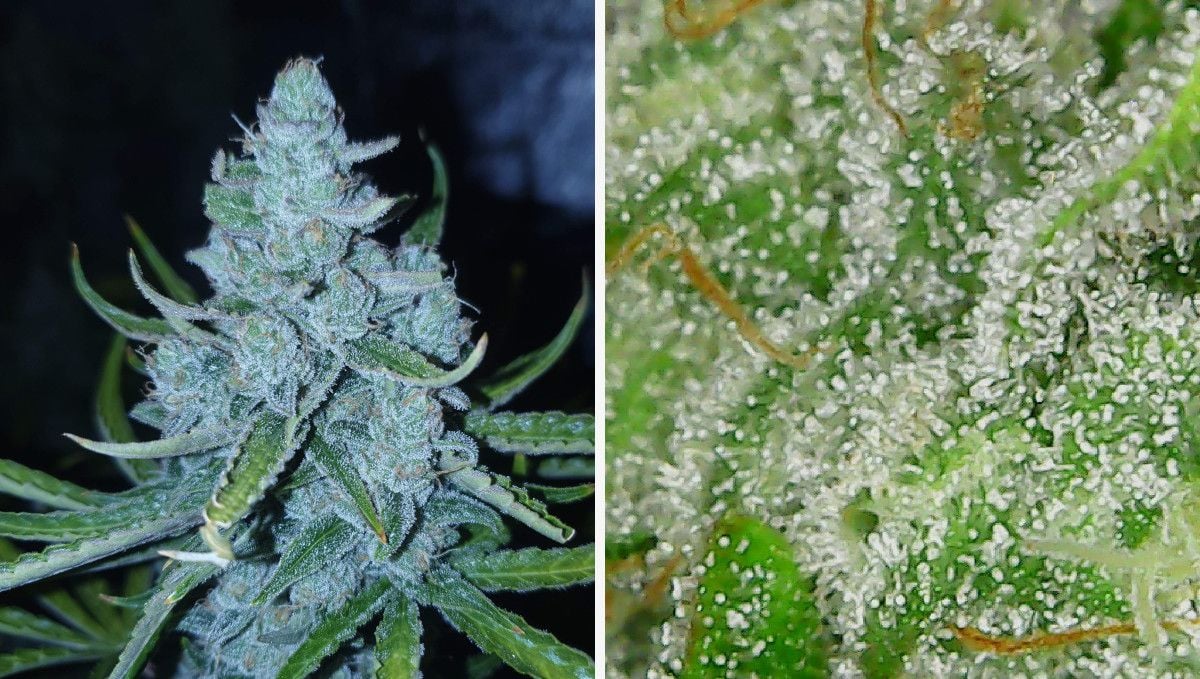
Sometime before that happens – about 2 weeks in soil grows and 1 week in hydroponics or coco grows – you should start to cleanse the medium and the plant itself from the salts that have been building up during the whole growth cycle. This procedure is called final flush and is very important for the aroma and taste of your smoke.
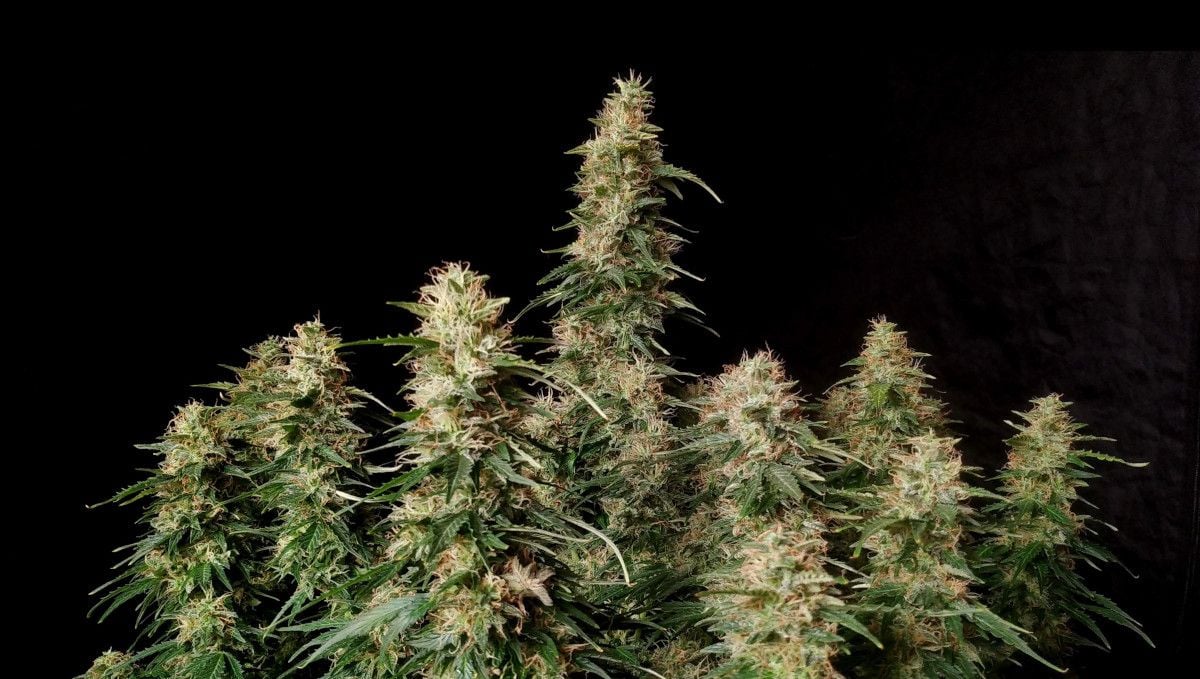
Another way to improve on the quality of your final product is to slowly dry and cure it for at least 3 weeks before sampling. The thing is that drying isn't just the process of evaporating excess moisture. During this time, a lot of important chemical processes is still going on inside the flowers: starches and sugars decompose, and so does chlorophyll – one that imbues the smoke with a characteristic unpleasant taste of fresh hay. Proper drying and curing, on the other hand, make the flavor profile of your buds subtle, varied, and unique.
10. Yield and Smoke Report
It's almost incredible that from such a small plant, measuring just over 1 foot (35 cm), the grower managed to harvest 5.04 ounces (143g) of dry bud, but he did - thanks to Blueberry Cheese Auto's bushiness and a huge number of branches/colas.

The reviews we've seen online consistently highlight the strain's potent and relaxing effects, making it ideal for nighttime use. Blueberry Cheese Auto is described as having a distinct and intense aroma reminiscent of blue cheese. Its taste is characterized by earthy and sweet cheese notes. Some users note a mild cerebral sensation, while overall, this strain is perfect for those seeking a strong, relaxing stone, best enjoyed during the evening or when relaxation is desired. Its unique aroma and flavor make it a standout choice for those looking for something different from the typical sweet strains.

11. In Conclusion
Blueberry Cheese Auto seems to be a plant calculated to please those home cultivators who have tight spaces but want to get way-above-average yields. This autoflower boasts a compact stature, with many side branches that yield almost the same amount of bud as the central cola, and this canopy profile doesn't require any special manipulations, not even LST. Thus, Blueberry Cheese Auto is a perfect indoor cultivar and worthy of every grower's attention. Happy growing everyone!









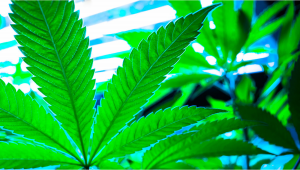

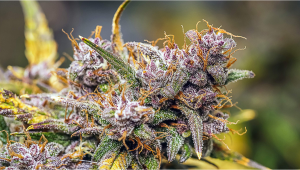

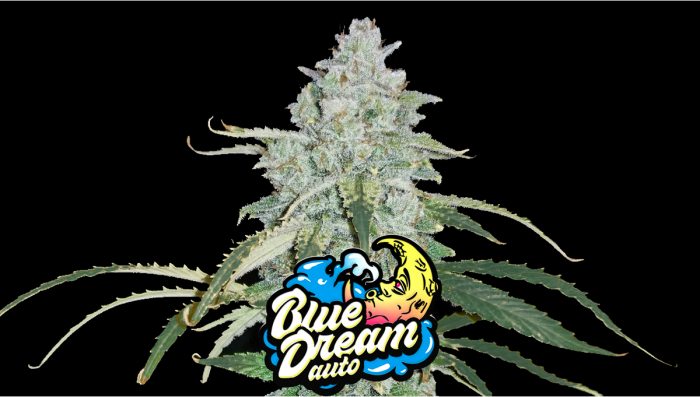
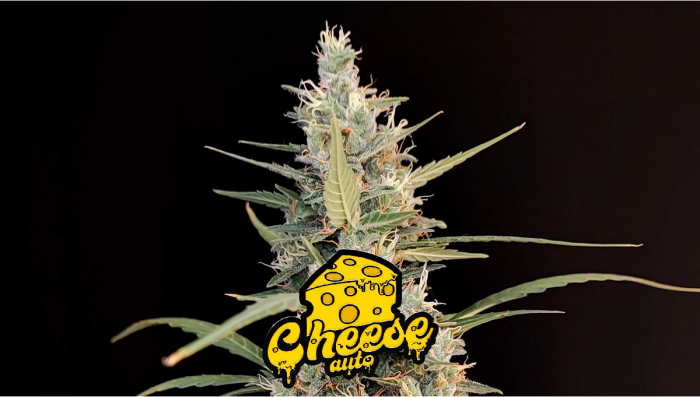
Comments